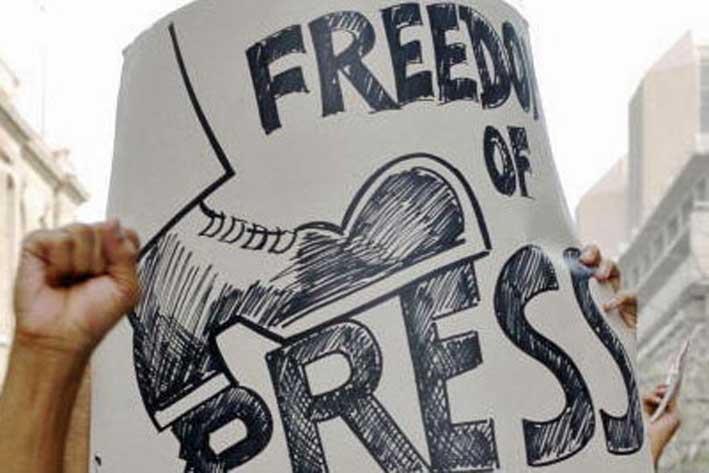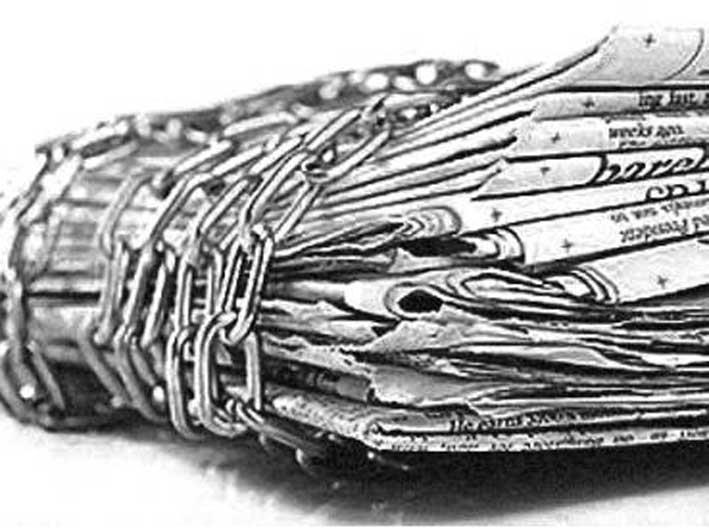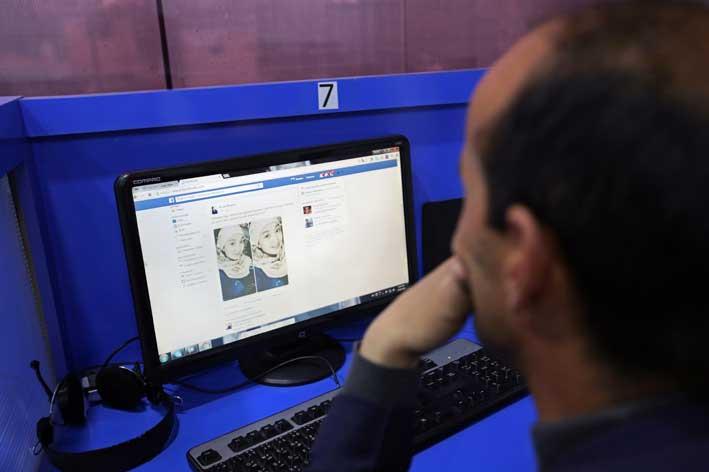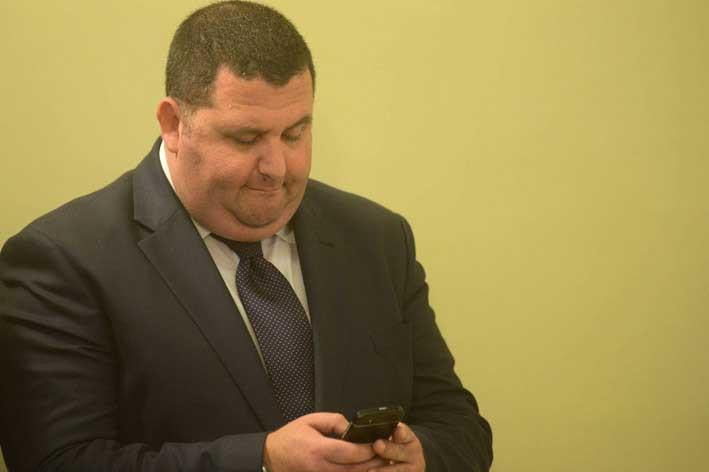Justice Minister Owen Bonnici yesterday stressed that the website registration clause under the proposed Media and Defamation Bill is there to address a situation in which a person can post anonymously about an individual, without that individual being able to seek out who is responsible or take appropriate legal action.
Dr Bonnici has recently come under heavy fire regarding the web registration clause, with people claiming that this is tantamount to censorship and a threat to journalism. In an extensive telephone interview with The Malta Independent Dr Bonnici explained that journalists who write for a website that is not registered will still have their sources protected by law. He also shed light on accusations that the clause was specifically intended to stifle blogger and journalist Daphne Caruana Galizia.
Under the proposed Media and Defamation Bill, news websites are required to be registered but there is no definition of what news is. Who decides?
So the intention was to create this obligation of news portal editors to register their name. I know that there were some concerns about the definition and I have heard some people saying it should be tweaked and further refined. If there are any suggestions forthcoming by perhaps including a definition of news or further fine tuning, we are game.

Is it up to the Press Registrar to decide what news is under the proposed Bill in its current form?
Today the media registry incorporates the names of radio, broadcasters and newspapers. The Malta Independent is registered with the registrar, this is not censorship but simply a way for the public to be aware of who is responsible for that newspaper or broadcaster.
So now we have extended this to web portals and online news portals. What I have been told, and verified, is that a number of journalists who work online would find difficult to register their names because the law does not provide for this.
It is true that there is criticism about this registration however I have been told that, on the ground, many online journalists want to be registered for Department of Information press cards [which allows access to certain Government activities and events]. In 2012 a policy was passed under the previous Nationalist Party government, which allows for portals and online news to be registered. This 2012 policy, which is online, outlines what is registered or not.
I honestly cannot understand this censorship critique because essentially we are putting into law what in 2012 was made a policy. The law was last amended in 1996, when there was no internet.

This seems to be straightforward for websites that are clearly news portals, but what about those which fall under a grey area?
Let’s start from here; our intension was never, for example, that if you use Facebook you need to register. We wanted the online news portals to be registered, and the truth is this is already in place. I was told that certain online journalists try to go to a PBS editor to get a signed letter – allowing them to register [which allows for a press card].
Many online journalists want to register. The way this is being perceived, it’s as though we’re trying censure sites like The Malta Independent.
Without a clear definition of news, could this allow room for abuse?
This is not an issue of censorship and this [abuse] was never our intention. If there is need for fine-tuning the definition, we are willing, and we can have a discussion on this. I am not saying that the law is perfect.
Protection of sources
For registered editors and journalists, who are on a full time or a part time basis, and write in the media, their sources are protected. This means that whether you register or not, the journalists’ source is still protected.
Ultimately the journalist cannot be blamed for not being registered if the editor did not register himself.
Today I saw an interview, which raised concerns about sources not being protected, this is not the case. Ideally you register, even to avoid bureaucratic problems such as getting a press card, which limits access to government events.

In a situation where any random person receives a tip for a story, and decides to create a web page to publish this one-off story, would their sources be protected?
Let’s talk about what there is today. Today, the 1975 law speaks about journalistic freedoms. The protection of sources applies to a journalist. This gets to a definition as to what a journalist, which the courts decide as has always been the case. So I have not understood why this has been met with difficulty now, but if there are any suggestions so that the protection of sources is also awarded to citizen journalists, why not, we can discuss and see what’s best.
The truth is, when a source passes along information, should the result of that information being published lead to a libel case, a person must still prove what they were told in court.
So if you say that Owen Bonnici was in Germany, because a source said so, you are still obliged to prove that I was in Germany. What you do not have to do is reveal who passed along that information.
We even discussed this with the Institute of Maltese Journalists; that the protection of sources is crucial for journalists and whether this should be extended to citizen journalists.
I have also been told, and which I was unaware of until recently, when somebody online who needs to register, the Press registrar looks at how long it has been operational. We are talking about the 2012 policy here that is already in place. I was told that there have been requests which have been refused because the registrar found that the site in question was not really news or current affairs.
The problem has actually been the opposite, there was never a situation where a website was placed on the register against their wish, more so there have been cases of people wanting to be placed on the register but were refused, as I just described. This is why I was so surprised when the barrage of criticism came flooding in with regards the web registration clause.

With this line of reasoning, this makes it that much more important to define news.
Yes, agreed if this is what is necessary. What we can also do is have any other website [non-news] register out of their own volition. Could this be a solution? Maybe. I think we need to be guided by the common sense of the Press Registrar.
If we need to define news more clearly to help the Press Register, maybe by formulating regulations, then let’s discuss.
I would like to do a good job out of this Bill. Changing the press laws is a once-in-a-generation opportunity. It is not something that can happen every day.
In the protection of sources clause, it is stated that editors/publishers of radio, print, broadcast and registered websites enjoy such protection ‘if the author habitually exercises the profession of journalist on a full or part-time basis’. Isn’t the term habitually rather vague?
I am aware of this. The advice from Dr Stefan Frendo and Dr Philip Manduca [who assisted in drafting the Bill] was that, let’s say you are a journalist, even a part-time one, but you regularly engage in the profession of journalism, you can enjoy the protection of sources – even if the editor is not registered or the journalist does not write daily.
Now, if there is a need to widen this definition – which takes us back to the argument made for the protection of sources, and how and whether this should be extended to all those who do journalistic work [citizen journalists and official press].
I was disappointed over the way the discussion progressed, I was a bit sad about the censorship accusations and this is why we need to discuss the finer points.

If there are defamatory comments made on Facebook by a person who is not an official journalist or is not using citizen journalism, are they sued under the proposed Media and Defamation Bill or with slander found within the criminal code?
This does fall under the Press Act, and would result in a civil libel case. The criminal code has measures in relation to slander. For example, if there are two people fighting, insulting each other, they would be able to file a defamation case under the Criminal Code.
So under this proposed bill, there is no possibility of criminal action being taken against work related to journalism, and for everything else people have the option of suing over slanderous remarks – which is something that cannot/should not be removed.
You must not forget, hate speech is still a crime. So, if on Facebook I write something unacceptable and racist such as “we should kill all people” from a specific race, that is criminal and does not fall under civil libel suits.
This government made penalties harsher for hate speech on the basis of religion. We modernised the law, so we are not saying you can insult priests as much as you like, because hate speech is still a crime and we made harsher the penalties. What happened is that we saw the vilification of religion as too broad a term, so that even a simple caricature of religious figures was treading the line.

Would Glenn Bedingfield or Daphne Caruana Galizia be accepted if they applied to be included in the media registry?
Let me speak about Daphne. At the beginning, people thought that the media registration clause was put in place specifically for her. Daphne is honestly the least of it because we know who she is and that she writes for her blog. So, I am very critical of Daphne because I believe that she crosses the line and I do not agree with this, but to be fair there is always her name attached and we know exactly who she is.
So, if I want to file for libel I know exactly who she is, there are no problems there. What concerns me is anybody who writes and hides their name. I think it is fair to say that anybody has the right to protect their reputation. So if I set up an anonymous website, I write that you spent five years in jail, you have the right to refute this claim.
With regards your question, how it is today [due to the 2012 PN policy and the legislation proposal under this new media bill] it would be up to the Media Registrar to decide whether Daphne or Glenn would be accepted on the list.
The intention of the Bill was not related to blogs but to news websites. Today, they register based on a sort of secret policy. It should not be that way, it should come from the law as the law should speak of the internet.
If anything, you would not be protected if you [the editor of a site] had to register and you failed to do so.
The registration is a sign of transparency and the right of the people to know the person, the editor, behind a news agency. If Daphne is refused by the press registry, and I do not think her blog is a news portal, it does not mean anything because, if rejected, her sources are still protected. The problem would be is if she should have registered and failed to do so, if we want to stretch it.